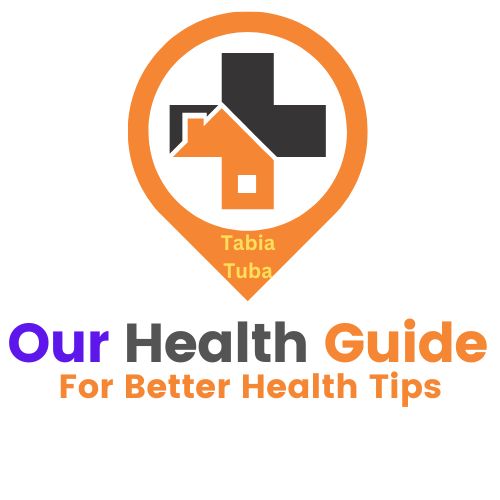Maintaining a healthy weight by age is crucial for overall well-being. As we grow older, our bodies undergo various changes that can affect metabolism, muscle mass, and activity levels. To help you navigate this journey, here are ten effective tips for maintaining a healthy weight by age.
1. Understand Your Body’s Needs
As you age, your body’s caloric and nutritional needs change. It’s important to assess your requirements based on your age, activity level, and health status. For instance, younger adults may require more calories for energy, while older adults might need fewer calories but more nutrients. Keeping track of your dietary needs can significantly aid in maintaining a healthy weight by age.
2. Prioritize Nutrient-Dense Foods
Opt for foods that are rich in vitamins, minerals, and other essential nutrients without excessive calories. Foods like fruits, vegetables, whole grains, lean proteins, and healthy fats should be staples in your diet. Focusing on nutrient-dense options can help you achieve a healthy weight by age while ensuring you get the necessary nutrients your body requires.
3. Stay Hydrated
Drinking enough water is vital at any age. Sometimes, our bodies can confuse thirst with hunger, leading to unnecessary snacking. Aim for at least eight 8-ounce glasses of water daily, adjusting as needed for your age and activity level. Staying hydrated supports overall health and can help maintain a healthy weight by age.
4. Incorporate Regular Exercise
Regular physical activity is essential for maintaining a healthy weight by age. As we age, muscle mass tends to decrease, which can slow down metabolism. Incorporate a mix of aerobic, strength training, and flexibility exercises into your routine. Aim for at least 150 minutes of moderate aerobic activity each week, along with muscle-strengthening exercises on two or more days.
5. Monitor Portion Sizes
Understanding portion sizes can help prevent overeating. As our metabolism slows with age, smaller portions can help maintain a healthy weight by age. Use smaller plates, and pay attention to hunger cues to avoid unnecessary calorie intake. It’s about making mindful choices that suit your body’s changing needs.
6. Limit Processed Foods
Processed foods often contain high levels of sugar, salt, and unhealthy fats, which can contribute to weight gain. Instead, focus on whole, unprocessed foods that provide essential nutrients. By minimizing processed food intake, you can better support your goal of a healthy weight by age.
7. Get Enough Sleep
Adequate sleep is often overlooked but is crucial for weight management. Poor sleep can disrupt hormones that regulate hunger and appetite, making it harder to maintain a healthy weight by age. Aim for 7-9 hours of quality sleep each night to support overall health and weight management.
8. Manage Stress
Chronic stress can lead to emotional eating and weight gain. Finding healthy ways to manage stress—such as through yoga, meditation, or hobbies—can greatly assist in maintaining a healthy weight by age. Incorporating stress management techniques into your daily routine can enhance both physical and mental health.
9. Set Realistic Goals
Setting achievable weight management goals can help keep you motivated. Instead of aiming for rapid weight loss, focus on gradual, sustainable changes that can lead to a healthy weight by age. Celebrate small victories along the way to stay encouraged and engaged in your journey.
10. Seek Professional Guidance
If you’re struggling to maintain a healthy weight by age, consider seeking advice from a healthcare professional, such as a registered dietitian or a personal trainer. They can provide personalized strategies tailored to your age, lifestyle, and health needs, helping you achieve and sustain a healthy weight by age.
Age Weight Charts (in Kilograms)
Here’s a simplified age weight chart in kilograms for different age groups. These ranges are general guidelines and can vary based on factors such as height, muscle mass, and overall health.
1. Children (2-19 years)
| Age (Years) | Boys Weight Range (kg) | Girls Weight Range (kg) |
|---|---|---|
| 2 | 11 – 15 | 10 – 14 |
| 3 | 13 – 17 | 12 – 16 |
| 4 | 15 – 20 | 14 – 18 |
| 5 | 16 – 22 | 16 – 22 |
| 6 | 18 – 24 | 18 – 24 |
| 7 | 20 – 28 | 20 – 28 |
| 8 | 22 – 30 | 22 – 30 |
| 9 | 24 – 36 | 24 – 36 |
| 10 | 26 – 40 | 26 – 40 |
| 11 | 30 – 45 | 30 – 45 |
| 12 | 35 – 50 | 35 – 50 |
| 13 | 40 – 55 | 40 – 55 |
| 14 | 45 – 60 | 45 – 60 |
| 15 | 50 – 65 | 50 – 65 |
| 16 | 55 – 70 | 55 – 70 |
| 17 | 60 – 75 | 60 – 75 |
| 18 | 65 – 80 | 65 – 80 |
2. Adults (20-64 years)
| Height (cm) | Men Weight Range (kg) | Women Weight Range (kg) |
|---|---|---|
| 150 | 50 – 70 | 45 – 60 |
| 155 | 55 – 75 | 50 – 65 |
| 160 | 60 – 80 | 55 – 70 |
| 165 | 65 – 85 | 60 – 75 |
| 170 | 70 – 90 | 65 – 80 |
| 175 | 75 – 95 | 70 – 85 |
| 180 | 80 – 100 | 75 – 90 |
| 185 | 85 – 105 | 80 – 95 |
| 190 | 90 – 110 | 85 – 100 |
3. Seniors (65+ years)
| Height (cm) | Men Weight Range (kg) | Women Weight Range (kg) |
|---|---|---|
| 150 | 45 – 60 | 40 – 55 |
| 155 | 50 – 65 | 45 – 60 |
| 160 | 55 – 70 | 50 – 65 |
| 165 | 60 – 75 | 55 – 70 |
| 170 | 65 – 80 | 60 – 75 |
| 175 | 70 – 85 | 65 – 80 |
| 180 | 75 – 90 | 70 – 85 |
Important Notes
- These ranges are approximations and can vary based on individual factors such as height and body composition.
- Always consult with a healthcare provider for personalized advice regarding weight and health.
Conclusion
Maintaining a healthy weight by age is an ongoing journey that requires awareness and dedication. By understanding your body’s changing needs, prioritizing nutritious foods, staying active, and managing lifestyle factors, you can achieve a weight that supports your health at every stage of life. Remember, it’s not just about numbers on a scale; it’s about feeling good and thriving in your own body. Embrace these tips and take control of your health today!

